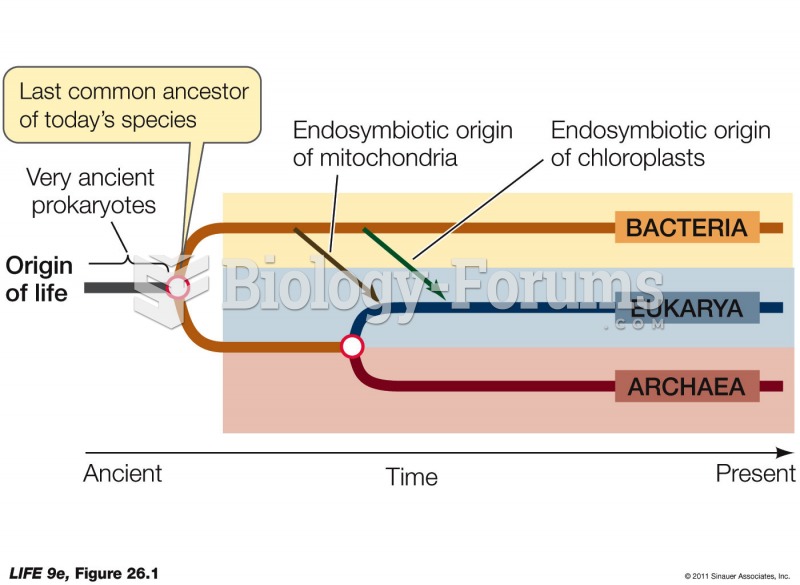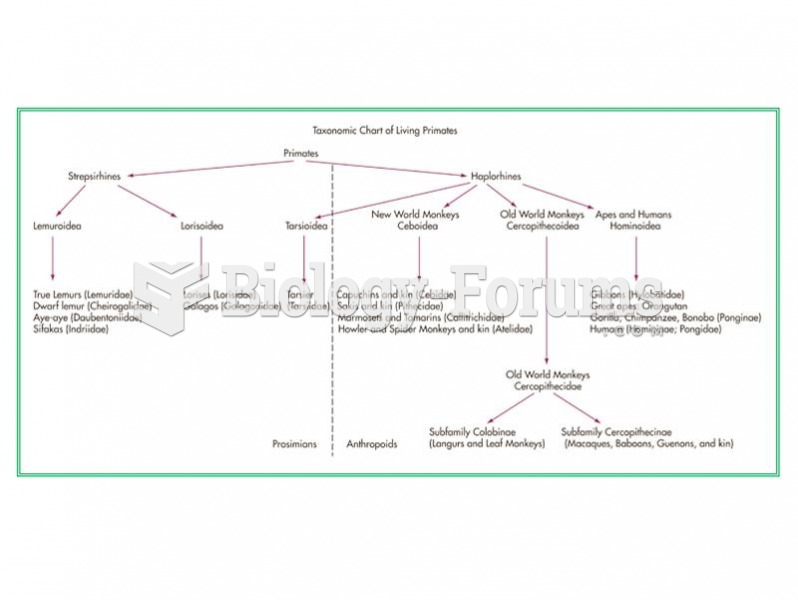|
|
|
More than 50% of American adults have oral herpes, which is commonly known as "cold sores" or "fever blisters." The herpes virus can be active on the skin surface without showing any signs or causing any symptoms.
Approximately 70% of expectant mothers report experiencing some symptoms of morning sickness during the first trimester of pregnancy.
Urine turns bright yellow if larger than normal amounts of certain substances are consumed; one of these substances is asparagus.
All adverse reactions are commonly charted in red ink in the patient's record and usually are noted on the front of the chart. Failure to follow correct documentation procedures may result in malpractice lawsuits.
The Babylonians wrote numbers in a system that used 60 as the base value rather than the number 10. They did not have a symbol for "zero."
 Protoneuridae is a family of damselflies. Most species are commonly known as threadtails, while othe
Protoneuridae is a family of damselflies. Most species are commonly known as threadtails, while othe
 A family of African Americans arrive in Chicago, migrants from the American South, in an exodus that
A family of African Americans arrive in Chicago, migrants from the American South, in an exodus that





